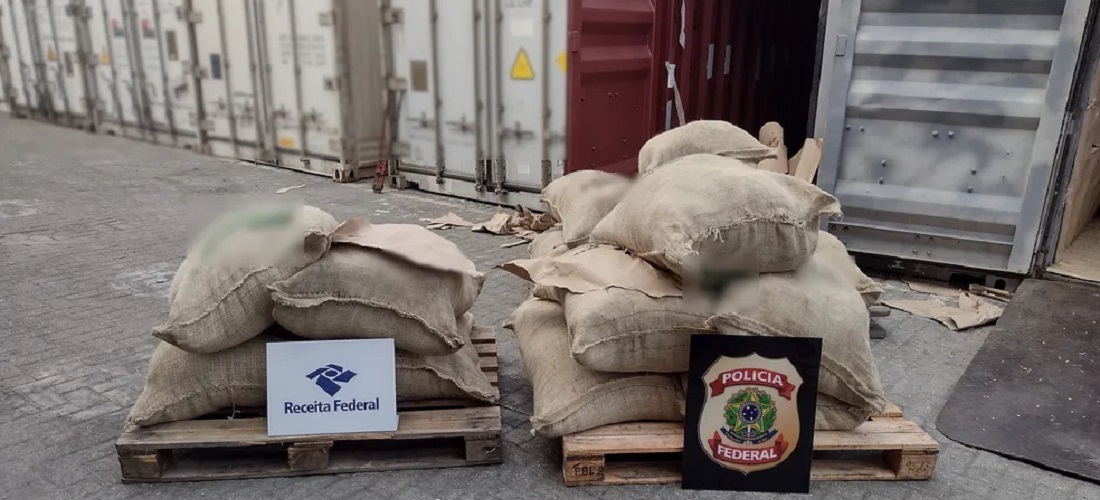
Drug gangs infiltrated shipping supply chains, warns top executive
Oct, 20, 2023 Posted by Gabriel MalheirosWeek 202341
Criminal networks have infiltrated maritime supply chains to an “extreme” degree, warned a top industry executive, as the European Commission unveiled plans to crack down on illegal drugs flooding European ports.
Cocaine shipments to the European Union have been on the rise in recent years, with criminals directing the drug flow through global maritime routes. A record 303 tonnes were seized in 2021, according to the latest data from the EU’s drug monitoring agency.
As a result, transport companies are dealing with “some of the most dangerous people in the world; the way these people are infiltrating the entire supply chain, not just on the maritime or port side, is quite extreme,” said Keith Svendsen, CEO of APM Terminals, a division of Danish transport group Maersk.
The warning comes as the European Commission proposed more coordination among European ports, governments, and private companies through the creation of a “European Port Alliance,” according to a draft communication seen by the Financial Times.
One proposal involves establishing common risk criteria and priorities for EU-level customs controls. €200 million will be allocated to fund container-scanning equipment from 2024.
The commission will also urge member states to implement existing security rules for ports, including providing ports and transport companies with the means to “vet and assess their employees to prevent corruption by criminal networks.”
The port city of Antwerp in Belgium is the largest cocaine trafficking hub in Europe, with a record 110 tonnes seized in 2022, according to customs authorities.
Antwerp only checks about 2% of the goods passing through the port, but plans to inspect all containers from Latin America considered “high risk” by 2028. Currently, about 5% of these containers are inspected.
For the maritime transport industry, the growing pressure to combat drug trafficking poses a risk of disrupting the commercial operations of container carriers that transport millions of steel boxes every week.
In August, Claudio Bozzo, COO of MSC, told the Financial Times that it “suffers consequences when it comes to costs” to make containers available for customs inspections. Svendsen declined to provide details on the costs of increased checks at Maersk but said, “the impact on the supply chain is the same for all companies.”
He said “more issues need to be resolved” before Antwerp’s 100% target can be achieved. Instead, he suggested that checks should be reinforced on exports from Latin America, citing a €1 billion investment that APM Terminals made in a container terminal operating in Moín, Costa Rica.
However, Svendsen said his biggest concern was a “duty of care” to his team, not the costs. “There have been incidents where infiltration has occurred, and employees are being coerced into helping” drug trafficking gangs, Svendsen said.
Port authorities in Rotterdam detected eight tonnes of cocaine on a Maersk ship in July, with a street value of €600 million, the largest cocaine seizure in the Netherlands.
Svendsen said that Maersk is not responsible for drugs in its containers. “What has gone wrong is that we have international drug trafficking using legitimate infrastructure to move this product, infiltrating supply chains.”
The commission declined to comment on the leaked document, which is subject to changes before publication.
Experts said that despite growing political consensus to address the issue, there are side effects for the global maritime transport industry due to stricter customs controls.
Richard Neylon, a maritime transport lawyer at HFW, said that sometimes it is “beyond the reach of shipowners to open and inspect” containers. “[Maritime transport is essential] for international trade. The risk of drug trafficking is a very difficult reason to refuse international trade.”
Source: Folha de S. Paulo
To read the original news publication, visit: https://www1.folha.uol.com.br/mundo/2023/10/traficantes-se-infiltram-em-cadeias-de-abastecimento-do-setor-maritimo-europeu.shtml
-
Trade Regulations
Aug, 09, 2024
0
Brazil extends antidumping duty on nitrile rubber from South Korea and France
-
Meat
Dec, 16, 2021
0
European supermarkets boycott Brazilian beef after reporting ‘cattle washing’
-
Ports and Terminals
Aug, 22, 2023
0
Soybean shipments at Porto Murtinho terminal skyrocket
-
Ports and Terminals
Dec, 12, 2022
0
Rio de Janeiro cargo throughput reaches 8.6 mln tonnes by October

